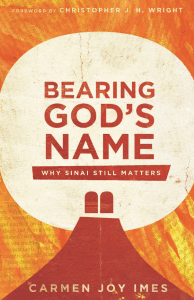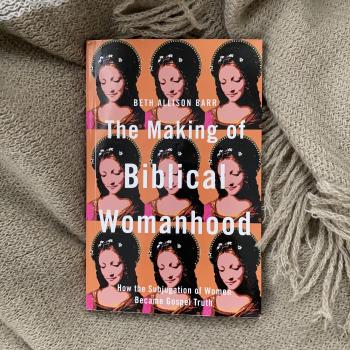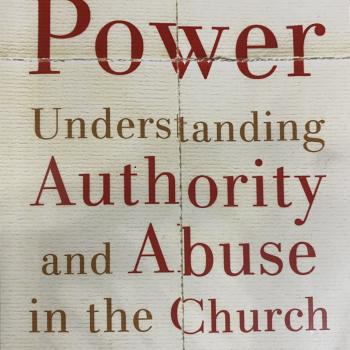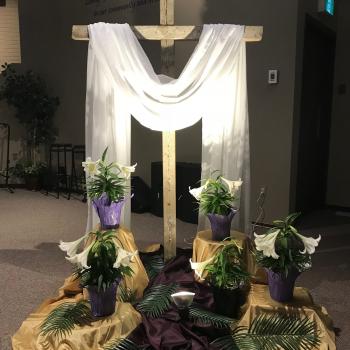 Is the Old Testament still of value to Christians, and if so, how so? Dr Carmen Imes, associate professor of Old Testament at Prairie College in Alberta, Canada, offers an answer to that question in Bearing God’s Name. Based on her doctoral research on the third Commandment, ‘You shall not take the Lord’s name in vain,’ her new book attempts “to address the need for Christians to recover the Old Testament and read it well,” she says.
Is the Old Testament still of value to Christians, and if so, how so? Dr Carmen Imes, associate professor of Old Testament at Prairie College in Alberta, Canada, offers an answer to that question in Bearing God’s Name. Based on her doctoral research on the third Commandment, ‘You shall not take the Lord’s name in vain,’ her new book attempts “to address the need for Christians to recover the Old Testament and read it well,” she says.What is your big idea for readers to grasp?
So how does the Old Testament Law connect with the New Testament teachings?
Carmen: On this side of the resurrection, certain aspects of the law are no longer necessary in the same way. They still teach us about God’s character, but we need not try to do them because their purpose has been met in Christ. Laws regarding ritual purity or ethnic distinction have been set aside (see Acts 10-15). Laws about sacrifice are no longer necessary because of Jesus’ once-for-all sacrifice. Laws regarding moral purity should be the impetus for reflection so that we can contextualize them for our context. What principle or value underlies this law? How might we express that principle or value in our context.
For example, the law that instructs Israelites not to reap to the edges of their field relates to social justice and care for the neighbor. Most of us are not farmers, so we need to think creatively about how to express this same concern in our context. How can we provide jobs for those in need? How can our generosity stimulate solutions for those without access to capital? In the case of Ruth, Boaz ensures her dignity and protection while working in his fields, going above and beyond what was expected in his day. Ruth was a foreigner without a husband to protect or provide for her. In our context, she’s the equivalent of a refugee or someone who could not pass a background check. Yet Boaz sees her diligence and rewards her with a steady job that will pay the bills.












